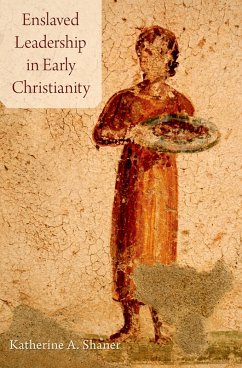Enslaved persons were ubiquitous in the first- and second-century CE Roman Empire, and early Christian texts reflect this fact. Yet the implications of enslaved presence in religious practices are under-examined in early Christian and Roman history.
Enslaved Leadership in Early Christianity argues that enslaved persons' roles in civic and religious activities were contested in many religious groups throughout ancient cities, including communities connected with Paul's legacy. This power struggle emerges as the book examines urban spaces, inscriptions, images, and literature from ancient Ephesos and its environs.
Enslaved Leadership breaks new ground in analyzing archaeology and texts-asking how each attempts to persuade viewers, readers, and inhabitants of the city. Thus this book paints a complex picture of enslaved life in Asia Minor, a picture that illustrates how enslaved persons enacted roles of religious and civic significance that potentially upended social hierarchies privileging wealthy, slave-holding men. Enslaved persons were religious specialists, priests, and leaders in cultic groups, including early Christian groups. Yet even as the enslaved engaged in such authoritative roles, Roman slavery was not a benign institution nor were all early Christians kinder and more egalitarian to slaves. Both early Christian texts (such as Philemon,1 Timothy, Ignatius' letters) and the archaeological finds from Asia Minor defend, construct, and clarify the hierarchies that kept enslaved persons under the control of their masters.
Enslaved Leadership illustrates a historical world in which control of slaves must continually be asserted. Yet this assertion of control raises a question: Why does enslaved subordination need to be so frequently re-established, particularly through violence, the threat of social death, and assertions of subordination?
Dieser Download kann aus rechtlichen Gründen nur mit Rechnungsadresse in A, B, BG, CY, CZ, D, DK, EW, E, FIN, F, GR, HR, H, IRL, I, LT, L, LR, M, NL, PL, P, R, S, SLO, SK ausgeliefert werden.
Hinweis: Dieser Artikel kann nur an eine deutsche Lieferadresse ausgeliefert werden.









